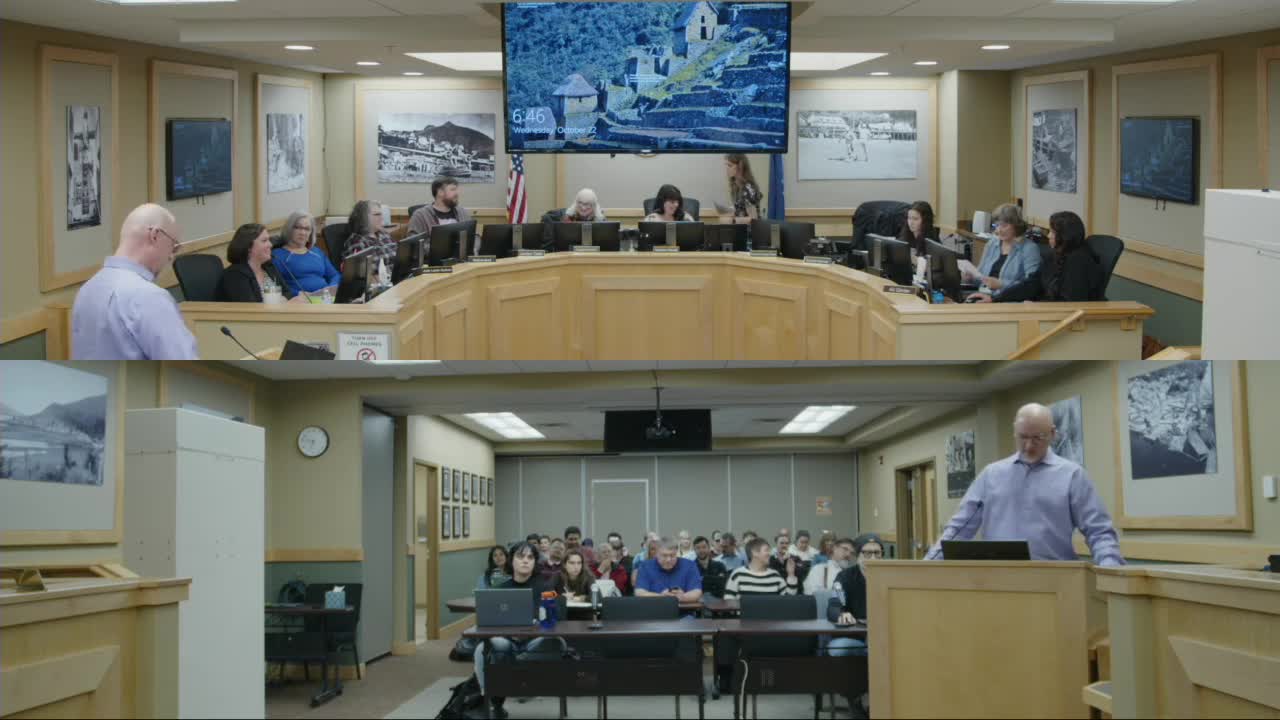Ketchikan schools warn staffing gap in IT threatens device, testing and security support
Get AI-powered insights, summaries, and transcripts
Subscribe
Summary
Technology supervisor Jurgen Johansen told the school board the district is below minimum IT staffing, with one field technician now supporting thousands of devices and hundreds of servers — leaving classroom technology, testing and compliance at risk.
Jurgen Johansen, the Ketchikan Gateway Borough School District technology supervisor, told the school board on Oct. 22 that the district has dropped below the minimum staffing needed to run its networks and classroom devices and asked the board to add field technicians.
Johansen said the district now has about 3,200 active devices, roughly 2,000 student Chromebooks, about 250 staff computers, more than 95 virtual servers and about 250 wireless access points. He said the IT department reduced from about three field technicians to one and that the remaining field technician — Jacob — handled 1,338 tickets in the 2024–25 school year.
"To keep the technology dependable for teachers and students, we cannot operate without adding field technicians," Johansen said.
Why it matters: The district's day-to-day instruction, digital testing and several federal compliance obligations (including E-rate and CIPA content-filtering requirements) rely on routine maintenance, timely device repairs and timely software and security updates. Johansen said centralized ticketing and administrative support were eliminated when staff positions were cut; that lack of administrative support has slowed communication with schools and lengthened response times.
His presentation listed concrete effects: longer turnaround on device repairs and OS updates, backlogs in app deployment for iPads, limited Mac support, gaps in asset tracking and delayed device refreshes. Johansen said leadership-level duties formerly handled by a technology director are currently deferred or added to the remaining team, creating a single-point-of-failure if another staff member is lost.
Board members pressed Johansen on what it would take to stabilize services. He said his near-term ask was two additional field technicians; he acknowledged a director-level position would help, but said two technicians would produce the most immediate classroom support at lower cost. He described the technician roles as "the critical hands-on support" for classrooms, while remaining staff manage servers, networking and compliance.
Johansen also described ticket-volume trends: the department handled about 2,200 tickets in 2022–23 when it had more staff; with 4.5 current staff he said the workload per person had roughly doubled, creating unsustainable pressure.
Board members and the superintendent acknowledged the presentation and said the staffing shortfall and costs will be considered during budget planning and in follow-up discussions with IT and human resources.
Ending: Johansen offered to provide more granular cost estimates and a prioritized hiring plan; the board asked staff to include IT staffing as a near-term budget priority and to return with options.
